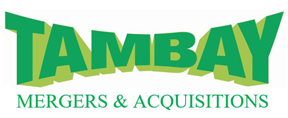The Struggles of Small Brick-and-Mortar Businesses in the Shadow of Corporate Giants

In the ever-evolving landscape of retail, small brick-and-mortar establishments face an uphill battle. While competition with large corporations has always been a challenge, the current economic climate, characterized by inflation and recession fears, has exacerbated their struggles. Unlike their corporate counterparts, smaller businesses lack the financial resilience and market leverage to weather these economic storms with ease.
Economic Pressures Amplified
Inflation has surged to levels not seen in decades, eroding consumer purchasing power and increasing operational costs for small businesses. Rising prices for goods and services force these businesses to either absorb the additional costs or pass them on to consumers, a dilemma that often results in reduced customer loyalty and decreased sales. Additionally, the specter of a recession looms large, threatening to further dampen consumer spending and tighten credit markets.
Large corporations, with their vast resources and economies of scale, can navigate these challenges more effectively. They have the capital to invest in technology, optimize supply chains, and offer competitive pricing. In contrast, small businesses operate on thinner margins and often struggle to access affordable financing, leaving them vulnerable to financial distress.
Impact on Small Businesses
The financial health of small businesses has been particularly hard hit. The rising costs of rent, utilities, and other fixed expenses continue to strain their limited budgets. Profit margins for these businesses are already slim, and any further economic strain could push them into insolvency.
Moreover, the competitive edge that small businesses once had, such as personalized customer service and unique product offerings, is being eroded by large corporations adopting similar strategies. Big businesses are leveraging advanced analytics and consumer data to offer tailored experiences, leaving small businesses struggling to differentiate themselves.
A Path Forward: Strategies for Survival
Despite these challenges, small businesses can adopt several strategies to remain competitive and sustainable in the current economic environment:
- Embrace Digital Transformation: Investing in digital marketing and e-commerce platforms can help small businesses reach a broader audience and compete with larger corporations. By enhancing their online presence, small businesses can attract new customers and offer convenience to existing ones. A Tampa business broker might advise leveraging social media and online advertising to boost visibility and sales.
- Local Community Engagement: Building strong relationships within the local community can foster customer loyalty. Small businesses should actively participate in community events, support local causes, and collaborate with other local businesses to create a supportive network. This approach not only strengthens ties but also enhances the business’s reputation as a community cornerstone.
- Focus on Unique Value Propositions: Differentiation is key. Small businesses should highlight their unique products or services that cannot be easily replicated by larger corporations. This could include locally sourced goods, personalized services, or specialized expertise. Sell your business in Tampa with a focus on what makes it special to attract the right buyers.
- Optimize Operations: Streamlining operations to reduce costs can improve profitability. Small businesses should regularly review their expenses and seek ways to minimize waste and increase efficiency. Leveraging technology for inventory management, customer relationship management (CRM), and financial planning can also yield significant benefits.
- Seek Financial Assistance and Partnerships: Exploring alternative financing options, such as small business grants, loans, or crowdfunding, can provide much-needed capital. Additionally, forming strategic partnerships with other businesses can create synergies and open new market opportunities. Consulting with the #1 business broker in your area can provide insights into potential financial resources and partnerships.
Conclusion
While the economic landscape presents formidable challenges for small brick-and-mortar establishments, there are viable strategies that can help them survive and thrive. By embracing digital tools, engaging with the local community, focusing on unique value propositions, optimizing operations, and seeking financial assistance, small businesses can navigate these turbulent times and emerge stronger. It requires resilience, adaptability, and a proactive approach to change, but with the right strategies in place, small businesses can continue to play a vital role in the economy.
If you’re considering selling your business, consulting with a top business broker can provide valuable guidance and support throughout the process, ensuring that you maximize your business’s value and find the right buyer. Remember, the right strategy and support can make all the difference in maintaining and growing your business in these challenging times.

